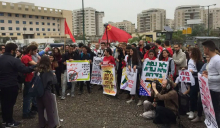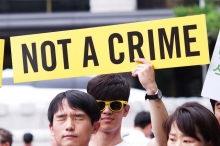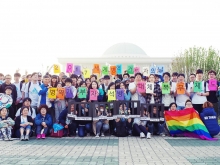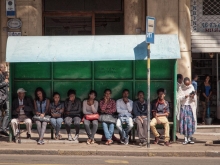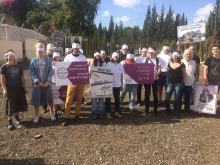This year on the 22nd of March, the Bolivian Plurinational Constitutional Tribunal (PCT) rejected the right of conscientious objection as an alternative to its obligatory military service. This has occurred in spite of the generally agreed-upon...
Countering the Militarisation of Youth is a project of War Resisters' International | 2017 | All content of this site is licenced under a Creative Commons Attribution-NonCommercial-ShareAlike 2.0 UK: England & Wales License, unless otherwise stated.
Website development by Netuxo Ltd




